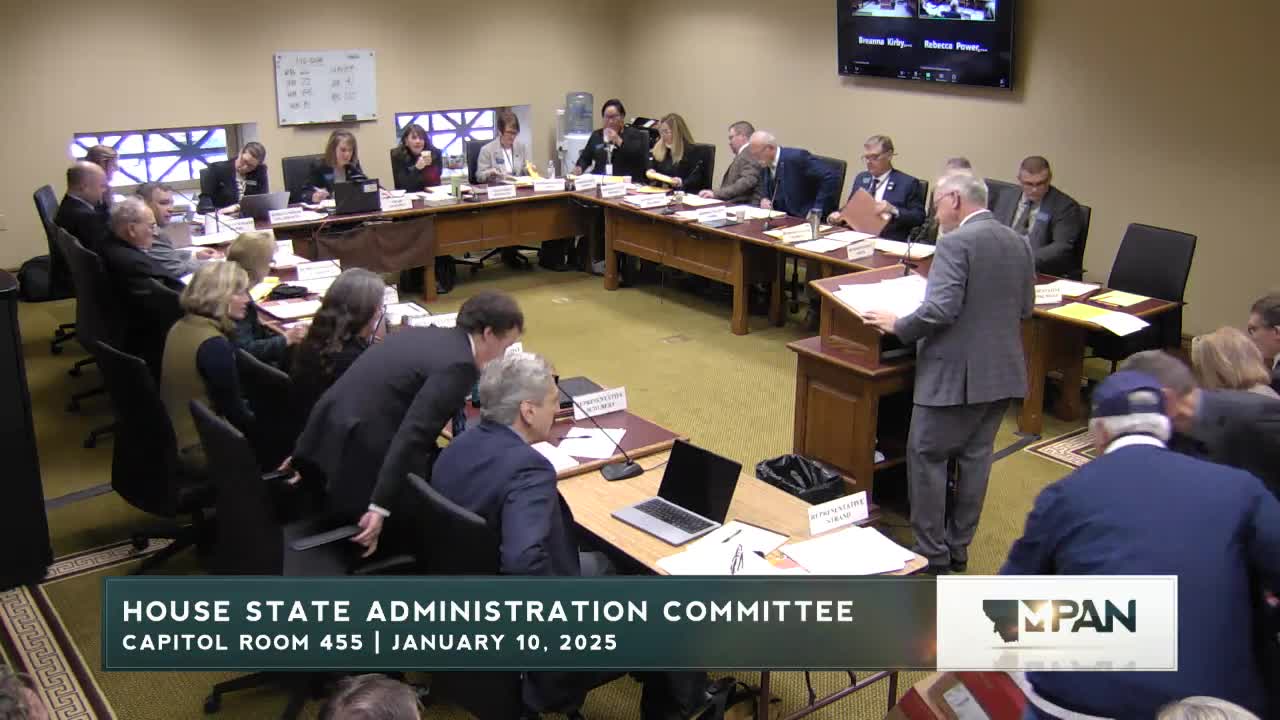Administration seeks standardized public‑records fees, filing fee and centralized process

Summary
House Bill 100 would standardize public-records request processing across state agencies, create a modest filing fee and clarify when agencies may recover direct search, processing and duplication costs.
House Bill 100 would expand and standardize the State of Montana’s public‑records process and fee structure and apply customer‑service provisions more uniformly across state executive agencies and other public agencies (with some timing differences built into the bill text).
Representative Bill Mercer, sponsor on behalf of the Department of Administration, described the bill as a follow-up to 2023 changes (Senate Bill 232) and a companion reporting requirement (House Bill 580) intended to standardize response-time acknowledgements, reporting and transparency. Mercer said the bill is designed to reduce inconsistent practices across agencies and to create clarity about when and how fees may be charged for searches, copying, processing, delivery and reasonable costs.
Department Director Misty Anne Giles described the operational work of the Office of Public Information Requests, which now provides a portal where requesters can file requests, receive acknowledgement within five business days and view status. Giles demonstrated the scale of records searches—examples ranged from a small solicitation to an "extra-large" request that filled a box and required dozens of staff hours and multiple personnel to process—and told the committee the filing fee is intended to ensure requesters are serious about broad or voluminous requests.
Director Don Harris (legal counsel for the Department of Administration) detailed steps agencies take: acknowledgement, cost estimate, coordination with the agency that holds records, privilege review and redaction when necessary, and final release. He said the department does not seek recovery for routine overhead, but the filing fee and recoverable charges are for time and costs directly attributable to the request. DEQ’s public records director (Rebecca Harbage) supported the bill and noted DEQ handles the most requests and incurred 1,790 logged hours and $10,267 billed for 1,100 requests in FY2024.
Opponents, led by the Montana Newspaper Association and the Montana Freedom of Information Hotline, argued the bill could chill access if fees are layered or applied to routine, noncommercial public-interest requests. The Montana Broadcasters Association also cautioned the statutory language could be read to permit charges for otherwise routine lookups such as license verification, and urged narrower fee definitions or stronger protections for news media and public-interest requesters.
During executive action the committee discussed an amendment (posted the day of committee action) that would impose a $25 hourly cap for searches and processing to limit potential charges; the sponsor said he supported the clarification and the department said the cap would reduce administrative uncertainty. Committee members asked for additional data on request volumes by agency and the department agreed to provide quarterly reports. The hearing record shows the bill touches comments on hosting costs for the public portal and a proposed retention window for the public reading room (two years). Proponents asked the committee to refine the fee language to avoid double-charging and to preserve public access; opponents urged explicit fee-waiver and public-interest safeguards.

